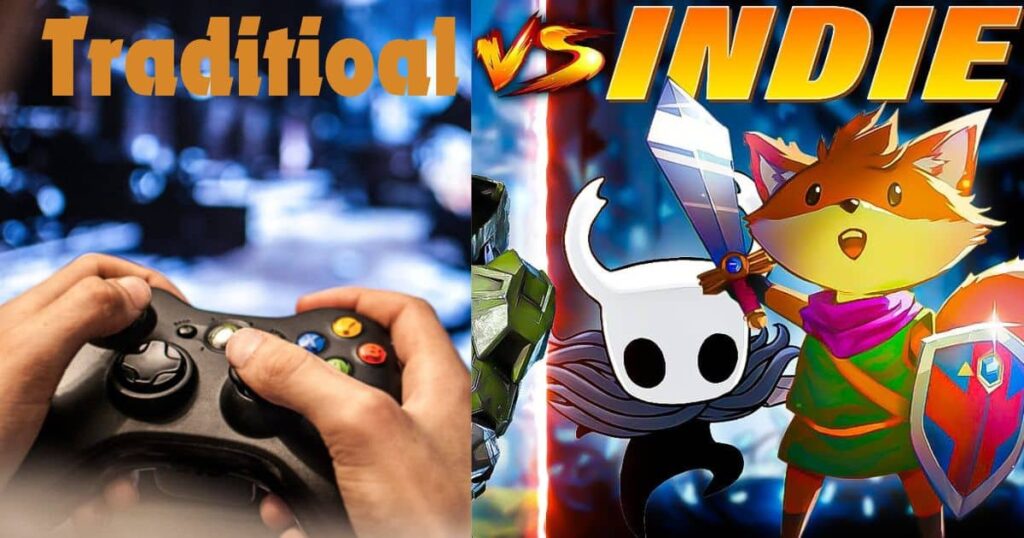The digital era is being revolutionized by the convergence of technology and gaming. Here’s a quick breakdown:
- Tech Infusion: Cutting-edge technologies like VR, AR, and AI are being integrated into games, creating immersive and interactive experiences.
- Startup Reshaping: This tech infusion fuels innovative startups that redefine traditional gaming concepts.
- Genre Bending: We’re seeing a rise in hybrid genres, blurring the lines between games and other media like fitness or education.
- Monetization Shift: In-app purchases and subscriptions are changing how games generate revenue, creating new opportunities for startups.
- Accessibility Boom: Tech advancements make games more accessible, reaching wider audiences and fostering diverse gaming communities.
The evolution of tech games encapsulates the transition from simple pixelated graphics to immersive virtual reality experiences.
It encompasses the development of hardware, software, and the emergence of new genres and platforms.
Tech games have transcended their recreational origins to become a driving force behind technological advancements.
They have influenced various sectors, including education, healthcare, and business, offering innovative solutions and experiences.
Historical Development

Tech games trace their roots back to the early days of computing when programmers created simple games like “Spacewar!” on mainframe computers.
These rudimentary games laid the foundation for the interactive entertainment industry.
The 1970s witnessed the rise of home consoles like the Atari 2600 and the Intellivision, bringing gaming into households worldwide.
This era introduced iconic games such as “Pac-Man” and “Space Invaders,” laying the groundwork for the gaming industry’s commercial success.
The proliferation of personal computers in the 1980s democratized game development, allowing individuals and small studios to create and distribute games independently.
This period saw the emergence of influential titles like “Super Mario Bros.” and “The Legend of Zelda.”
The 1990s marked a significant leap in gaming technology with the advent of 3D graphics and CD-ROMs. Games like “Final Fantasy VII” and “Tomb Raider” showcased the potential of immersive storytelling and cinematic experiences.
Technical Specifications

Hardware Evolution
Tech games have pushed the boundaries of hardware innovation, driving advancements in processing power, graphics capabilities, and input devices.
From bulky arcade machines to sleek gaming consoles and powerful PCs, the evolution of hardware has enabled increasingly realistic and immersive gaming experiences.
Software Development
Advancements in software development tools and techniques have empowered game developers to create complex and visually stunning worlds.
From assembly language programming to modern game engines like Unity and Unreal Engine, the tools of the trade have evolved to accommodate ambitious creative visions.
Applications

Entertainment Industry
The entertainment industry has been the primary beneficiary of tech games, with blockbuster titles generating billions in revenue and captivating audiences worldwide.
From console gaming to mobile apps, games have become a ubiquitous form of entertainment, rivaling movies and television.
Education and Training
Tech games have also found applications beyond entertainment, serving as powerful educational tools and training simulators.
Gamification techniques are increasingly being integrated into educational programs to make learning more engaging and interactive.
Healthcare and Therapy
In the healthcare sector, tech games are being used for rehabilitation, mental health treatment, and even pain management. Virtual reality games, in particular, have shown promise in providing immersive therapy experiences for patients with various conditions.
Benefits
Entertainment Value
One of the primary benefits of tech games is their ability to provide entertainment and escapism for players of all ages. Whether it’s exploring fantastical worlds, solving puzzles, or competing in multiplayer battles, games offer a diverse range of experiences to suit every taste.
Cognitive Development
Games can also stimulate cognitive functions such as problem-solving, spatial awareness, and strategic thinking.
Educational games, in particular, are designed to challenge players’ minds and encourage learning through interactive gameplay.
Social Interaction
Multiplayer games and online communities foster social interaction and collaboration, allowing players to connect with friends and strangers from around the world.
Whether it’s teaming up to defeat a common enemy or competing in virtual sports tournaments, games provide avenues for socializing and building relationships.
Challenges and Limitations
Addiction and Health Concerns
One of the major challenges associated with tech games is the risk of addiction and its impact on mental and physical health.
Excessive gaming can lead to social isolation, sleep disturbances, and poor physical fitness, raising concerns among parents, educators, and healthcare professionals.
Content Regulation
The proliferation of violent and sexually explicit content in some games has sparked debates about the need for stricter regulation and age ratings.
Balancing artistic freedom with responsible content moderation remains a contentious issue within the gaming industry.
Technological Barriers

Despite advancements in hardware and software, technological barriers such as hardware requirements and internet connectivity can limit access to games, particularly in underserved communities and developing countries.
Bridging the digital divide is essential for ensuring equal opportunities for all gamers.
Latest Innovations
Virtual Reality (VR) and Augmented Reality (AR)
Virtual reality and augmented reality technologies are revolutionizing gaming by offering immersive, interactive experiences that blur the line between the virtual and physical worlds.
From VR headsets to AR-enabled mobile apps, these technologies are reshaping the way we play and interact with games.
Cloud Gaming
Cloud gaming platforms are disrupting the traditional gaming model by allowing players to stream games directly to their devices over the internet, eliminating the need for expensive hardware and physical media.
Services like Google Stadia and Microsoft xCloud are leading the charge towards a future where gaming is accessible to anyone with an internet connection.
Artificial Intelligence (AI) Integration
Advancements in artificial intelligence are enhancing game experiences by enabling more realistic simulations, dynamic storytelling, and intelligent non-player characters (NPCs).
AI-driven algorithms are also being used to personalize gameplay experiences and optimize game balance and difficulty.
More Post:
How Long Do Asus Gaming Laptops Last? A Comprehensive Guide
Future Prospects
Metaverse and Persistent Worlds
The concept of the metaverse, a collective virtual shared space, holds promise for the future of gaming, offering limitless possibilities for social interaction, commerce, and creativity.
Persistent worlds populated by AI-driven NPCs and player-generated content could redefine the boundaries of gaming as we know it.
Blockchain and NFTs
Blockchain technology and non-fungible tokens (NFTs) are poised to revolutionize the gaming industry by enabling true ownership of in-game assets, provably fair gameplay, and decentralized economies.
NFT-based games like “Axie Infinity” are already gaining traction, paving the way for a new era of player-driven economies.
Integration with Emerging Technologies
Gaming will continue to intersect with emerging technologies such as 5G, edge computing, and biometrics, opening up new possibilities for immersive experiences, real-time multiplayer gaming, and seamless cross-platform integration.
The convergence of technology trends will shape the future landscape of gaming in unprecedented ways.
Comparative Analysis
Traditional vs. Indie Games

When discussing the gaming landscape, it’s essential to differentiate between traditional and indie games. Each category brings its own unique characteristics, development processes, and market dynamics.
| Aspect | Traditional Games | Indie Games |
|---|---|---|
| Development Process | Typically developed by large studios with dedicated teams. | Often created by small teams or individual developers. |
| Budget | High budgets, often exceeding millions of dollars. | Limited budgets, often funded through crowdfunding. |
| Production Values | High production values, including cutting-edge graphics. | Varied production values, ranging from minimalist to high. |
| Marketing | Extensive marketing campaigns and promotional tie-ins. | Relies on grassroots marketing and word-of-mouth. |
| Availability | Wide availability across multiple platforms. | Often limited to specific platforms or distribution channels. |
| Creative Freedom | May be constrained by commercial considerations and publisher demands. | Greater freedom to explore niche genres and experimental ideas. |
| Audience Appeal | Appeals to mainstream audiences with broad appeal. | Often targets niche audiences with unique selling points. |
Console vs. PC Gaming

| Feature | Console Gaming | PC Gaming |
|---|---|---|
| Ease of Use | Simple setup and intuitive interface | Requires knowledge of hardware and software |
| Exclusive Titles | Access to platform-exclusive games | Varies depending on platform and publisher |
| Customization | Limited hardware customization options | Extensive customization for hardware and software |
| Graphics and Performance | Standardized hardware with consistent performance | High-end hardware for superior graphics and performance |
| Affordability | Lower upfront cost compared to high-end PCs | Higher upfront cost with potential for long-term savings |
| Modding Community | Limited modding capabilities | Extensive modding community with user-created content |
| Backward Compatibility | Limited backward compatibility | Extensive backward compatibility through emulation and digital distribution |
| Social Gaming | Emphasis on social gaming experiences | Community-driven multiplayer with integrated voice chat |
User Guides or Tutorials
Getting Started with Gaming
For newcomers to the world of gaming, getting started can be a daunting task. Here’s a step-by step guide to help you dive into the exciting world of gaming:
Decide whether you want to game on a console, PC, or mobile device. Each platform offers unique advantages and experiences, so choose one that aligns with your preferences and budget.
Explore different gaming genres such as action, adventure, role-playing, strategy, and simulation. Experiment with various genres to discover what resonates with you the most.
Research popular games within your chosen genre and read reviews from both critics and players to gauge their quality and suitability. Consider factors like gameplay mechanics, graphics, story, and community.
Set up your gaming hardware, whether it’s a console, gaming PC, or mobile device. Ensure that your equipment is properly configured and updated to maximize performance and stability.
Create accounts on gaming platforms like Steam, PlayStation Network, Xbox Live, or the Epic Games Store to access digital storefronts, online multiplayer features, and community forums.
Explore free-to-play games and demos to get a taste of different experiences without committing to a purchase.
Many popular games offer free versions or trial periods, allowing you to test them out before investing.
Join online gaming communities and forums to connect with fellow gamers, share tips and strategies, and participate in multiplayer matches.
Building a network of like-minded individuals can enhance your gaming experience and broaden your horizons.
Practice your gaming skills and strive to improve over time. Whether you’re mastering complex combos in fighting games or honing your aim in first-person shooters, consistent practice is key to becoming a proficient gamer.
Stay informed about the latest gaming news, updates, and trends by following gaming websites, social media accounts, and YouTube channels.
Being up-to-date with industry developments will enrich your gaming experience and help you discover new titles.
Also see:
apple watch
Frequently Ask Question
What are Tech Games?
Tech games refer to digital interactive experiences developed using advanced technology such as virtual reality, augmented reality, and artificial intelligence. They encompass a wide range of gaming genres and platforms, offering immersive and engaging experiences to players.
How can Tech Games redefine startups?
Tech games can redefine startups by offering innovative solutions for various industries, enhancing customer engagement, and providing new avenues for monetization. Startups can leverage tech games to differentiate themselves in the market and create compelling experiences for their target audience.
What are the benefits of using Tech Games in startups?
Using tech games in startups can provide several benefits, including increased brand visibility, enhanced user engagement, improved customer retention, and access to valuable data analytics. Additionally, tech games can help startups attract investment and talent by showcasing their innovative capabilities.
What are some examples of Tech Games used by startups?
Some examples of tech games used by startups include immersive virtual reality experiences for training and simulation, augmented reality apps for retail and marketing, and gamified learning platforms for education and employee training. These games demonstrate the versatility and potential of tech-driven solutions in startups.
How can I get started with Tech Games in my startup?
To get started with tech games in your startup, begin by identifying your target audience and their preferences. Research existing tech game solutions and evaluate how they align with your startup’s goals and objectives. Consider partnering with experienced game developers or investing in game development tools and resources to bring your ideas to life.
Final Thought
The evolution of tech games has transformed the landscape of entertainment, technology, and culture.
From humble beginnings to cutting-edge innovations, games continue to push the boundaries of creativity and technology, captivating audiences around the globe.
As we look to the future, the possibilities for gaming are limitless, promising even more immersive, interactive, and inclusive experiences for players of all backgrounds and interests.







